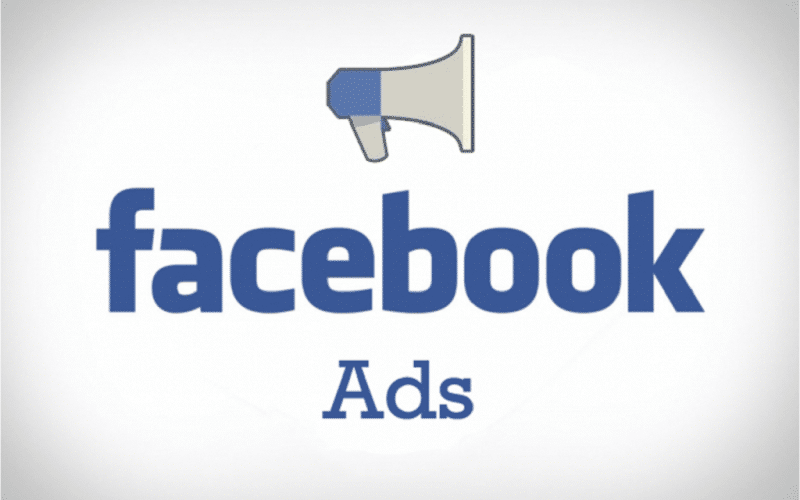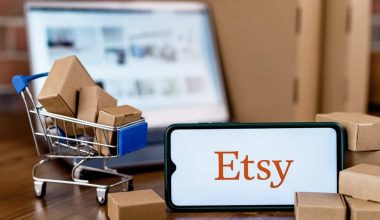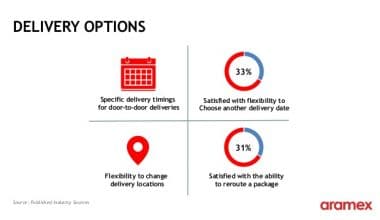Facebook is a must-have tool for small businesses in Nigeria, providing a low-cost means to contact thousands of potential customers with a few clicks. Running advertisements on Facebook involves more than just boosting posts; it’s about strategically targeting the right audience, developing the correct message, and refining campaigns to achieve the greatest results. According to Statista, Nigeria will have over 100 million active Facebook users in 2024, making it one of the best venues for reaching both local and worldwide audiences. This post will show you how to run successful Facebook ads for small businesses in Nigeria, using real-life examples, practical recommendations, and simple methods.
Why Facebook Ads Are Essential for Small Business in Nigeria
As small businesses in Nigeria confront increased competition, maintaining a solid internet presence has become critical. Facebook advertisements enable businesses to access a highly focused audience for a fraction of the cost of traditional advertising strategies. Unlike other platforms, Facebook’s advanced algorithm allows small companies to target their ads to those who are most likely to engage with them, whether they are interested in beauty items, fashion, food, or technology services.
Facebook’s extensive targeting options allow you to target your audience based on demographics, location, hobbies, and even behaviors. This level of specificity ensures that your marketing budget is carefully spent and that your company reaches the appropriate customers.
A Step-by-Step Guide to Running Facebook Ads for Small Businesses
#1: Create a Facebook Business Page
To run Facebook advertising, you need a Facebook Business Page. This page serves as the public face of your company, allowing potential customers to engage with you, send messages, and explore your products or services. A well-optimized company page not only boosts your online credibility, but it also serves as the foundation for developing a community around your brand.
To create a Business Page on Facebook, follow these steps:
- Log in to your personal account. If you don’t have one, create one first.
- Click “Create” and pick “Page”: At the top of your homepage, click “Create” and then “Page.”
- Enter your business information: Follow the prompts to enter your company name, select the best category for your business (e.g., retail, service provider), and give a brief description of your products or services.
- Upload your brand visuals: Select a professional-looking profile picture—ideally, your company logo—and a cover photo that reflects your brand. Make sure your images are clear and consistent with your brand identity.
- Complete the “About” section: This part is critical for explaining what your company is about. Include your contact information, website URL, and business hours, if applicable.
Creating a company page is not only required for running Facebook advertisements, but it is also an essential component of your online presence. Your page should be kept active by posting regularly, sharing engaging material, and interacting with customers.
#2. Access Facebook Ads Manager
Once your company page is up and operating, you may access Facebook Ads Manager. The Ads Manager serves as the central center for all advertising-related activities. You may develop and manage campaigns, track performance indicators, and make real-time changes to improve your outcomes.
To access Ads Manager, follow these steps:
- Navigate to the Ads Manager. You can visit facebook.com/adsmanager directly or select “Ads Manager” from your company page’s “Explore” section.
- Familiarize yourself with the UI: Although Ads Manager has a user-friendly layout, it may appear confusing at first. Spend some time investigating the dashboard, which features tabs for campaign management, ad sets, and individual advertising.
- Set up your payment method: Before launching any adverts, be sure to provide a payment method in the Settings. Facebook accepts a variety of payment methods, such as credit/debit cards and PayPal.
Ads Manager is your go-to tool for all things Facebook advertising, providing complete control over your ad campaigns across Facebook, Instagram, Messenger, and the Audience Network.
#3. Define Your Advertising Objective
When starting a new campaign, the first step is to determine an aim. Facebook provides a variety of advertising objectives to help businesses achieve their aims. For small firms in Nigeria, they may include:
- Brand Awareness: Reach out to those who are inclined to remember your brand.
- Traffic: Attract visitors to your website, app, or landing page.
- Engagement: Increase your likes, comments, shares, and event reactions.
- Conversions: Promote specific activities like sales, sign-ups, or app installations.
Your purpose should be closely related to what you hope to achieve with your advertisement. For example, if you want to enhance foot traffic at a small store, a traffic or brand awareness campaign may be the ideal option. If you’re opening an e-commerce store, a conversion campaign may be more appropriate.
To select an objective, follow these steps:
- Click “Create” in Ads Manager to view a list of available options.
- Choose the most relevant objective: Depending on your aims, you can choose from awareness, consideration, or conversion-based objectives.
- Customize your campaign: Once you’ve decided on an aim, you may customize the parameters to meet your requirements, such as adding campaign names, configuring ad scheduling, and more.
#4. Establish a Target Audience and Budget
One of the primary reasons why Facebook advertising is so powerful is its ability to target specific audiences. Facebook lets you specify your target audience based on demographics, location, hobbies, behaviors, and even life events. This means that small businesses in Nigeria can target their advertising budget on the people who are most likely to engage with them.
Steps for Defining Your Target Audience:
- Select your audience’s location: You can select certain regions, cities, or even neighborhoods. For example, a Lagos-based company may target people in Lagos or even specific areas such as Victoria Island or Ikeja.
- Set demographic filters: Determine your target audience’s age, gender, and language preferences. For example, a beauty product company would target ladies aged 18 to 35.
- Include interest-based targeting: Select from a wide range of interests that are relevant to your audience. For example, a tech startup may target people who are interested in technology, gadgets, or innovation.
- Consider actions and life events: You can also target users based on their actions (e.g., frequent travelers) or life events (e.g., recently moved, engaged).
Once you’ve identified your target group, it’s important to determine a budget. Facebook provides inexpensive choices to suit any business size.
Budgeting Tips:
- Determine if you want to set a daily budget (e.g., ₦2,000 per day) or a lifetime budget (e.g., ₦20,000 spread over 10 days).
- Begin small and grow: Begin with a modest daily budget and gradually increase it depending on the performance of your advertising.
#5. Create an Engaging Ad
Your ad’s creative aspects, including images, language, and call-to-action (CTA), are critical to its effectiveness. Facebook provides a variety of ad styles, including single-image ads, video ads, carousel ads, and slide-show ads. The format you choose should be consistent with your marketing objectives and audience preferences.
To create effective ads, follow these tips:
- Use high-quality imagery that is clear, visually appealing, and relevant to your product or service. For example, if you’re advertising a restaurant, utilize eye-catching photographs of your cuisine to draw customers.
- Create an engaging headline: The headline should immediately capture the reader’s attention and communicate the value of your service. Use clear, action-oriented language.
- Include a powerful call-to-action (CTA): Ask your viewers to do particular activities like “Shop Now,” “Learn More,” or “Get a Quote.” Make sure the CTA is relevant to the purpose of your ad.
- Focus on benefits, not features: Instead of listing features, highlight what your product or service can achieve for the customer. Instead of saying, “We sell running shoes,” try something like, “Run faster and feel more comfortable with our lightweight, durable running shoes.”
Test different ad versions to determine which one works best.
#6. Monitor and Optimize Your Campaign
After your ad goes live, it’s critical to evaluate its success and optimize as needed. advertisements Manager offers key performance indicators (KPIs) such as click-through rate (CTR), cost per click (CPC), and conversion rate, which will help you understand how well your advertisements are doing.
Steps to Monitor and Optimize:
- Track key metrics, including CTR, engagement, and conversion rate. If your CTR is poor, your creative may not be connecting with your target demographic, so consider altering it.
- Adjust targeting and budget: If you observe that one audience segment is performing better than others, narrow your targeting to focus on that group. Similarly, you might boost your budget for high-performing advertisements.
- A/B testing: Experiment with various ad styles, headlines, images, and CTAs to determine the most effective combination. Facebook lets you do split tests to compare performance.
- Optimize ad placements: Facebook allows you to run advertising across Instagram, Messenger, and the Audience Network. Review performance statistics to determine which platforms produce the greatest outcomes and optimize accordingly.
Remember that Facebook’s algorithm will automatically adjust your ad delivery over time, allowing you to get the optimum performance as it learns from user interactions.
FAQs on Running Facebook Ads
What is the minimum budget for running Facebook advertising in Nigeria?
In Nigeria, the minimum daily expenditure for Facebook advertisements is roughly ₦500. However, it is recommended to start with at least ₦2,000 per day for effective results. The size of your target audience and your advertising objectives will determine your budget.
How can small businesses measure the effectiveness of their advertisements?
Success may be quantified using key performance indicators (KPIs) such as the click-through rate (CTR), conversion rate, and cost per acquisition (CPA). Monitor these indicators regularly to gain insight into how well your ad is doing.
What types of Facebook ads are ideal for small businesses?
For small businesses, ads that focus on engagement, traffic, or conversions are most effective. Your business objectives and the kind of content you’re advertising will determine the type of ad that works best for you.
A Template for Facebook Ad Creation.
Here’s a simple template to help you create your first Facebook ad campaign:
Objective: (Select among brand recognition, traffic, conversions, etc.)
Target Audience: (Enter age, gender, location, interests, etc.)
Budget: (Example: ₦2,000 per day)
Ad Creative: (Explain the sort of ad—image, video, carousel—and the key message or CTA.)
This template will walk you through the process of creating an effective Facebook ad that connects with your target demographic.
Key Takeaways
- Facebook advertisements provide highly targeted advertising, allowing small businesses to reach the right people at the right time.
- Understanding your audience is critical—to maximize the impact of your advertisement, identify your target market based on location, interests, and behaviors.
- Begin with a realistic budget and optimize as you go. Small enterprises can start with as little as ₦2,000 per day.
- Creative quality is important—use high-quality photographs or videos and create an engaging message to interest your audience.
- Monitor your performance metrics—regular monitoring ensures that your campaigns are functioning well and enables for any necessary tweaks.
Conclusion
Running Facebook advertising for small businesses in Nigeria does not need to be difficult. Understanding your audience, creating clear objectives, and tweaking your advertising based on performance data can allow you to design effective campaigns that provide results. Whether you are a fashion boutique in Lagos or a restaurant in Abuja, Facebook ads can help you build your business.
What is your biggest issue when running Facebook advertisements, and how do you intend to overcome it?
Related Articles
- How To Find Hidden Comments on Facebook
- How to Start a Business Facebook Page
- How to Use Facebook Pay: The Complete Guide
- How To Buy Shares On Facebook From Nigeria
- FACEBOOK FOR BUSINESS: All You Need to Know






